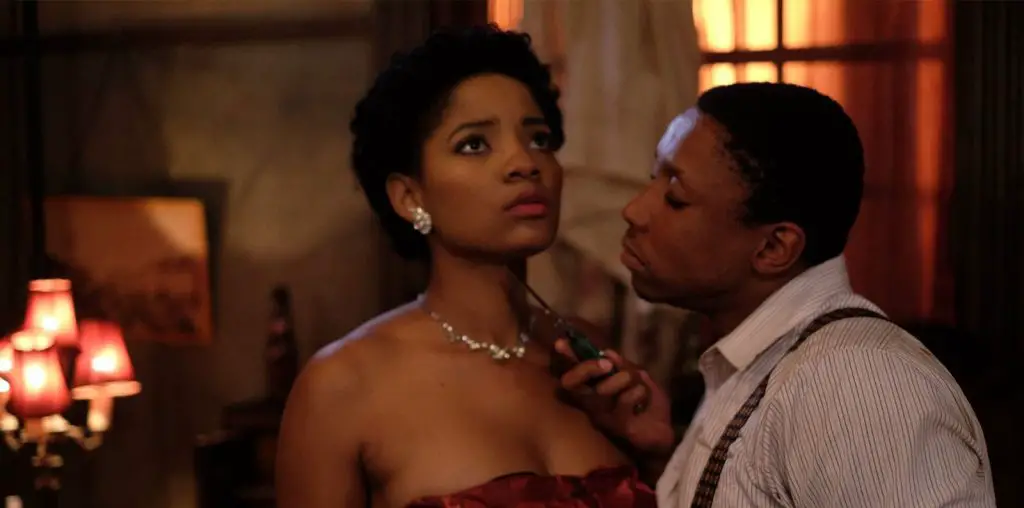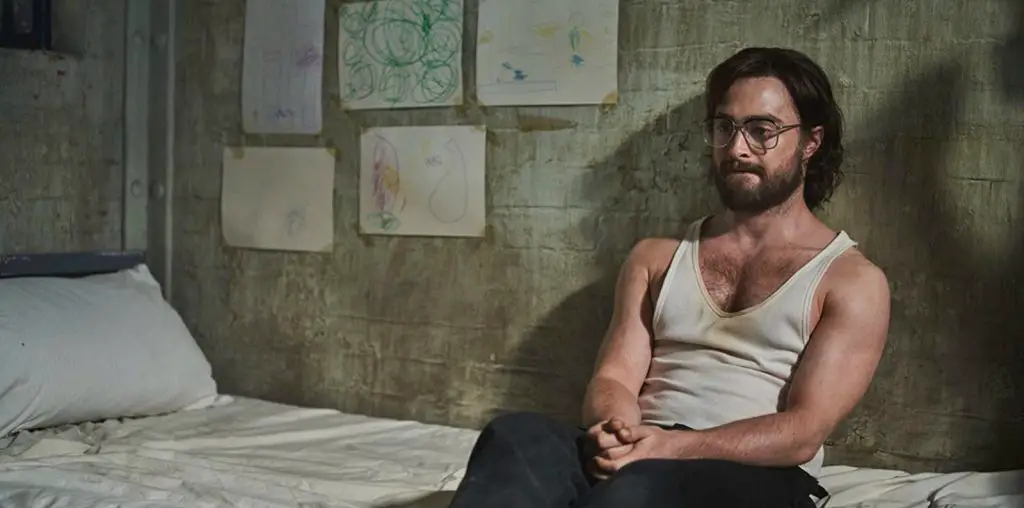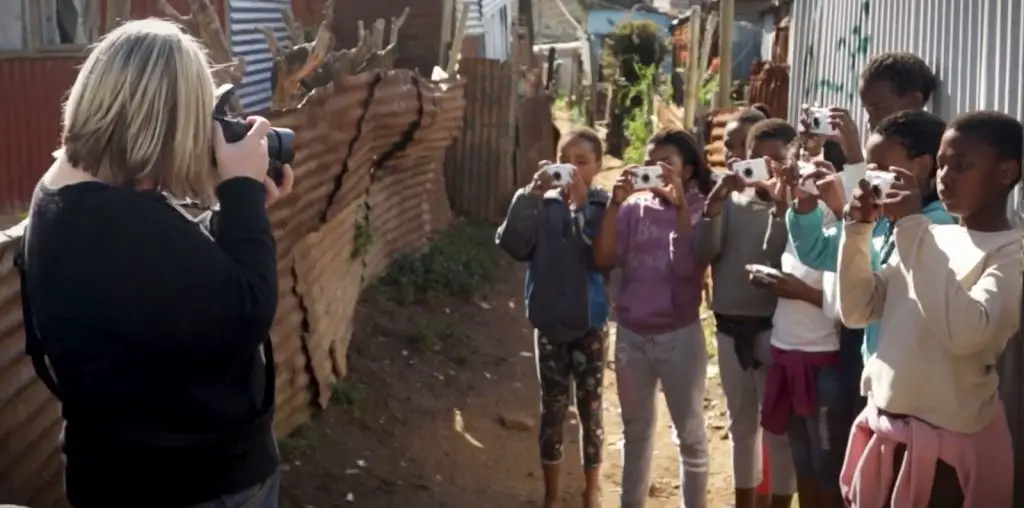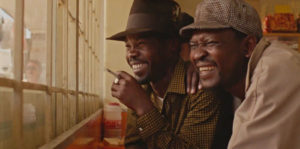
Director and co-writer Oliver Schmitz is re-releasing his 1988 South African anti-apartheid classic Mapantsula. The film follows a small-time criminal in Soweto township called Panic, played by the late Thomas Mogotlane, who also co-wrote the script. Panic is an aggressive, self-absorbed thief who finds himself caught up in the struggle for freedom.
The title means “petty gangster” in South Africa, and Panic lives up to that epithet. While other repressed Black South Africans are pushing back against apartheid with protests and political action, Panic focuses only on personal gain, fine clothes, and his status in the neighborhood. He sustains this reputation through muggings and by taking advantage of those around him. He is perpetually late with rent to his kind landlady Ma Mobise (Dolly Rathebe), and he shows up at the house where his girlfriend Pat (Thembi Mtshali) works as a maid to ask her for money. The White South African woman who owns the house, Joyce (Margaret Michaels), fires Pat over the disruptive visits. Panic is a low life.
When he is swept up in a police raid after a rent protest, he is interrogated by Inspector Stander (Marcel van Heerden), who is bemused and impressed with Panic’s extensive criminal record. He accuses Panic of terrorism and asks him to document details of his political activities and accomplices. While incarcerated, Panic is forced to face realities about the anti-apartheid movement, and he begins to examine his own self-interest versus working for the greater good.
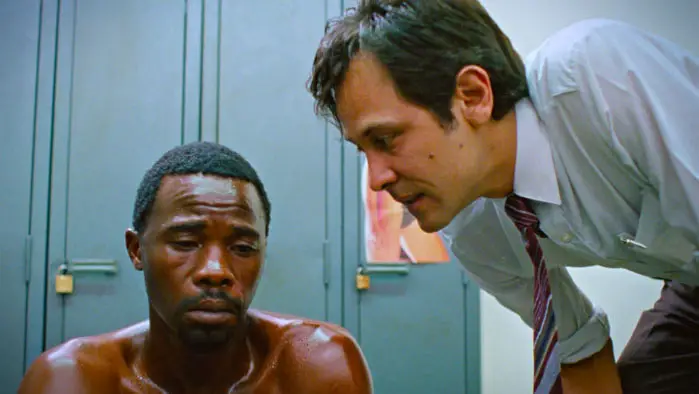
“…while others are protesting apartheid, Panic focuses only on personal gain…”
35 years after its original release, where it was banned by the apartheid government after screening just once, the 4K restoration of Mapantsula is coming back to theaters. Schmitz has worked on restoring the film for years, and he believes this version better captures its themes. In an interview with OkayAfrica he shared his passion for the message: “I always wanted the film to be vibrant because it’s about resilience and it’s about an unbroken spirit. Despite everything that apartheid threw at people, it’s about spirits that refuse to be broken.”
The film is a subtle masterpiece. The cinematography captures the dusty protest culture of South Africa, and the performances are solid gold. With dialogue in Zulu, English, and Afrikaans, it gives an authentic flavor of life under apartheid. Panic, as the protagonist, is genius. He’s not a messianic figure like Nelson Mandela or Desmond Tutu. This is no blue-glow hagiography designed to serve a political agenda. Panic is an appalling man, and the viewer has no reason to invest in him until we see him coming alive to the real impact of the political situation. The journey of Panic is relatable to the ground-level life of any regular person under extraordinary circumstances. His example goes further than that even, since Panic cares only for himself to begin with.
Greek philosophers said, “No man ever steps in the same river twice,” meaning the person and the river are always changing. This notion applies when considering a film’s context and meaning. Mapantsula came out in a world with a different set of challenges than we face in 2024, and we are changed people from those who lived in 1988. The contrast is enlightening and interesting. While apartheid did eventually fall, the racial hate embedded in it has persisted in other forms and places. This film shows life under brutal segregation with a minority ruling over a vast population. The notion that a wealthy few pulled this off should make the blood of every American run cold. It can happen again. Mapantsula is timely and relevant 35 years later.
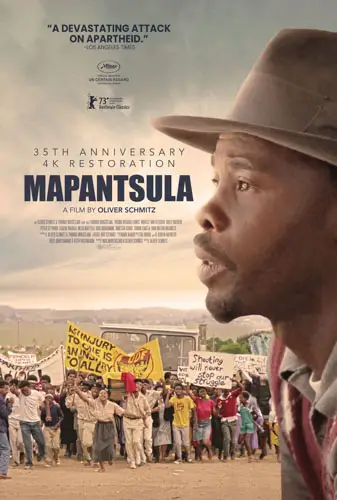
"…an aggressive, self-absorbed thief who finds himself caught up in the struggle for freedom"
